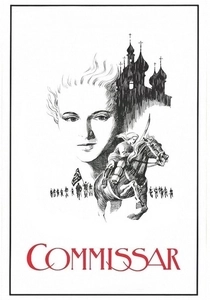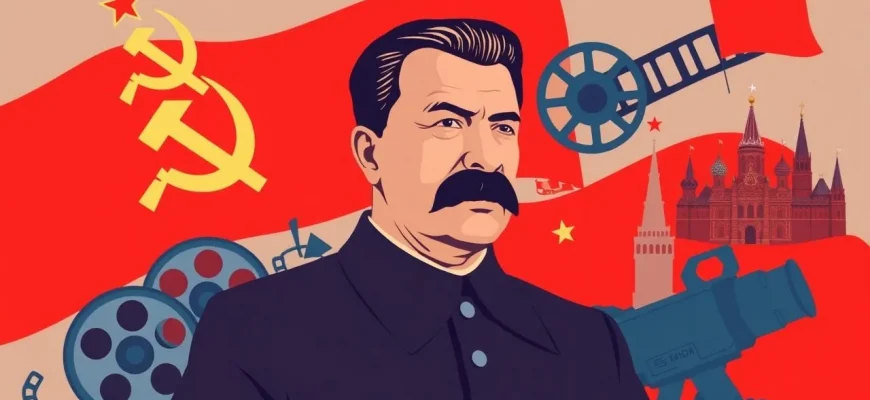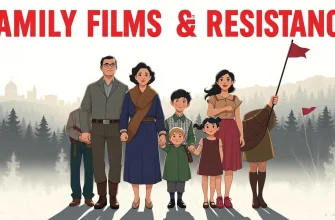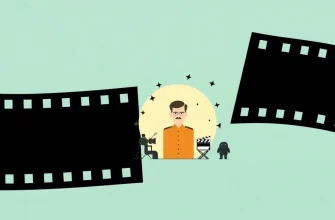Delving into the life of Joseph Stalin, one of the most controversial figures of the 20th century, is no small feat. These films offer a cinematic journey through his rise to power, his rule, and his legacy, providing viewers with a nuanced look at the man behind the myth. Whether you're a history buff or simply intrigued by complex characters, this curated list of films will give you a multifaceted view of Stalin's era.

Burnt by the Sun (1994)
Description: Set in the summer of 1936, this film captures the paranoia and fear during Stalin's Great Purge, focusing on a Red Army officer's life.
Fact: It won the Academy Award for Best Foreign Language Film and was directed by Nikita Mikhalkov, who also starred in it.
 Watch Now
Watch Now 
The Death of Stalin (2017)
Description: This satirical black comedy explores the chaotic power struggle following Stalin's death, offering a darkly humorous take on Soviet politics.
Fact: The film was banned in Russia, and its director, Armando Iannucci, had to change the release date due to political sensitivities.
 Watch Now
Watch Now 
The Commissar (1967)
Description: Set during the Russian Civil War, this film examines the human side of a female commissar who is forced to stay with a Jewish family, reflecting on Stalin's policies.
Fact: It was banned in the Soviet Union for 20 years due to its portrayal of Jewish characters.
 Watch Now
Watch Now 
The Inner Circle (1991)
Description: A projectionist at the Kremlin cinema becomes entangled in the inner workings of Stalin's regime, offering a personal perspective on the era.
Fact: The film was directed by Andrei Konchalovsky, who was once a member of the Soviet Union's artistic elite.
 30 Days Free
30 Days Free 
The Chekist (1992)
Description: This film focuses on the brutal reality of Stalin's secret police, offering a chilling look at the execution of political prisoners.
Fact: It was directed by Alexander Rogozhkin, who also made the acclaimed film "The Cuckoo."
 30 Days Free
30 Days Free 
Moloch (1999)
Description: This film portrays a weekend in the life of Adolf Hitler and Eva Braun, with a brief appearance by Stalin, offering a surreal look at dictators.
Fact: The film was shot in black and white, and its director, Alexander Sokurov, is known for his unique visual style.
 30 Days Free
30 Days Free 
The Fall of Berlin (1950)
Description: This Soviet epic glorifies Stalin's role in the defeat of Nazi Germany, presenting a highly propagandistic view of WWII.
Fact: It was one of the most expensive films ever made in the Soviet Union at the time, with a budget equivalent to several million dollars.
 30 Days Free
30 Days Free 
The Khrushchev Tapes (2009)
Description: This documentary features interviews with Nikita Khrushchev, providing insights into Stalin's rule and its aftermath.
Fact: The film uses archival footage and interviews to paint a vivid picture of the post-Stalin era.
 30 Days Free
30 Days Free 
The Red Orchestra (2003)
Description: This film tells the story of the Soviet spy network in Nazi Germany, with Stalin's influence felt through the espionage activities.
Fact: It was based on real events and characters, offering a glimpse into the complex world of wartime espionage.
 30 Days Free
30 Days Free 
The Stalin Epigram (2010)
Description: Based on the true story of poet Osip Mandelstam, this film explores the consequences of criticizing Stalin through poetry.
Fact: The film was adapted from a novel by Robert Littell, and its release was delayed due to political sensitivities.
 30 Days Free
30 Days Free 








